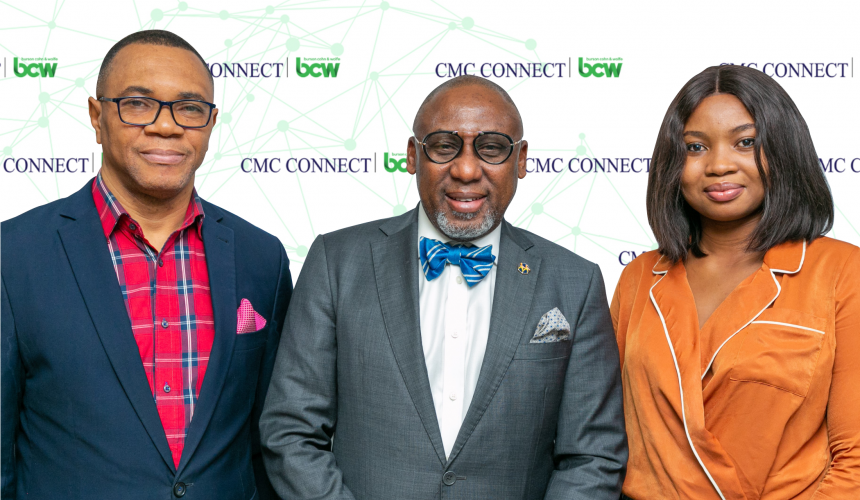The Chief Marketing Officer, CMOs role is facing both evolution and decline as companies redefine growth priorities, shift marketing responsibilities and demand to meet modern business expectations.
Beyond branding, he conversation around the relevance of these professionals continues to dominate strategic business circles, industry experts are offering deeper insights into why the position is changing.
With this necessary shift, top marketing professionals say that today’s Chief Marketing Officer must not only understand branding but also deliver measurable financial impact.
Also Read:Modern marketing should be driven by key principles – Global CMOs
Victor Gbenga Afolabi, Group Chief Executive Officer of GDM Group, explained that because consumers are evolving in the blink of an eye and new trends continue to emerge daily, the marketing function can no longer operate as it did in the past.
He emphasised that today’s marketing operations require professionals who are ahead of their time, understand the new domains, and know how to leverage emerging technologies to drive sales and revenue.
The experiential marketer said the decline of the traditional C-Suite marketing role and the emergence of new forms is inevitable for any brand that wants to stay ahead of the curve.
Afolabi observed that some CMOs lack today’s business skills required to navigate modern business environments and that today’s businesses expect marketing heads to lead revenue generation efforts as well.
Also Read:CMOs Lean on AI to navigate budget freeze, agencies brace for cuts
The GDM boss described the evolution and decline of the CMO role as a result of changing expectations, pressure for immediate returns, and the rise of data-driven strategies. He said CMOs are now expected to use data and analytics to personalize customer experiences and measure campaign effectiveness.
“The role has expanded to cover broader responsibilities including ownership of the customer journey, beyond traditional communications. “
Also weighing in, Iquo Ukoh, a renowned marketing expert and accomplished entrepreneur, said the CMO role is going through an evolution, not extinction.
She explained that as consumers and business models change, so must the structure and skill sets within marketing teams. While CMOs, brand managers, and product managers remain part of the structure, she said today’s digital world demands new capabilities.
Also Read:Experts urge CMOs to adapt as global brands shift focus to data-driven marketing
However, Ukoh argued that the kind of marketing talent required ten years ago differs significantly from what businesses need today. She added that companies now need individuals who understand personalized marketing and know how to read consumers differently.
In her view, the challenge is not about chasing numbers but about the availability of relevant skill sets.
She emphasised the importance of revenue and the current need for marketing professionals who can manage today’s complexity and deliver results with the right tools and mindset.
“If we’re looking at the world we’re operating in, which is the digital world, we need people who have the right skill sets to manage businesses. And in marketing, trust me, the kind of people we had in place 10 years ago are not the people we need today.”
Also Read:Dentsu Boss, Rowlands urges CMOs to see AI as co-pilot, not competitor
In a similar vein, Adeola Kayode, Head of Brands and Creative Services at 9mobile, stressed that CMOs must now clearly show how their performance links to financial outcomes, as that is what gains the attention of the C-suite.
He affirmed that, marketing must own the numbers to earn leadership roles.
He urged marketing professionals to align their efforts with business performance if they want to remain relevant and rise to leadership positions.
Also Read:Another milestone achieved: Firstbank disburses N1bn in one day, through agent credit scheme
Kayode pointed out that many brand managers often project their own assumptions onto consumers instead of deeply engaging with who their audience is today or who they will be tomorrow. This disconnect, he said, leads to marketing strategies that lack relevance and fail to support long-term growth.
“Too often, we skip the work of truly understanding today’s consumer and ignore the future audience we’re meant to be preparing for. As a result, we create campaigns that miss the mark and fail to build a clear path forward.”
He emphasized that while creativity and virality have their place, marketers must ultimately deliver results. “Going viral is great, but hitting business targets matters more. Marketing exists to meet business objectives.”
He encouraged marketers to take ownership of their role in driving growth, stressing the need to measure how marketing efforts directly influence revenue, profitability, and market share.
“Marketers must understand how their messages land with individuals, not just the masses and how each campaign translates into business impact.”
Also Read:Human touch in the age of automation: the art of authentic marketing in a connected world
Kayode believes marketers who combine expertise in sales, product development, and distribution with strong brand knowledge will stand out and climb faster into leadership. “The professionals who understand how each part of the value chain connects to marketing will have the strongest case for becoming CEOs.
Offering another perspective, Osamede Uwubanmwen, President of the Advertisers Association of Nigeria (ADVAN), said the CMO role is being rebranded in line with company strategy and market focus.
Uwubanmwen revealed that some companies now refer to the role as chief growth officer, chief revenue officer, or chief customer officer depending on where the business needs emphasis.
Also Read:Fearless vs Pop Energy trademark war: are marketing innovators vulnerable?
The ADVAN President explained that at times when revenue is under pressure, marketing heads are told to focus less on brand-building and more on delivering income.
The industry leader added that in such cases, the role shifts to cover pricing, margins, and other commercial levers.
He explained that while the core activities of marketing remain, the emphasis changes with the brand’s lifecycle.
“When building awareness, a CMO may focus on brand affinity and image. But once brand equity is in place, attention shifts to monetisation and growth, which can redefine the title and responsibilities.”
Also Watch:MARKETING EDGE ONTV






Comment
No comments found.